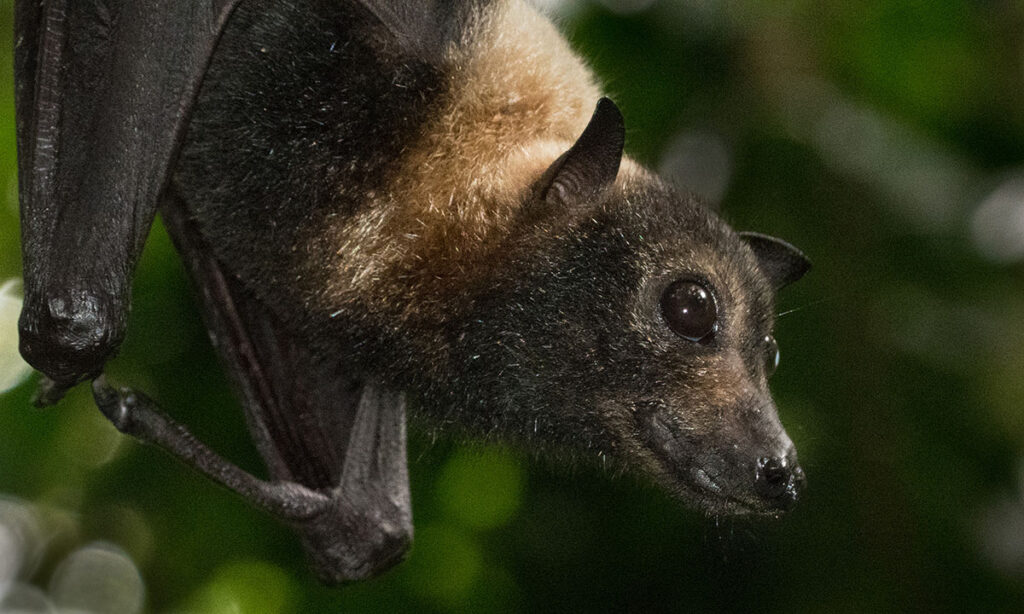
UPDATE
The Wide Bay Hospital and Health Service has released more information regarding a public health alert issued yesterday for people who had contact with bats on display at the ‘Welcome to Bargara!’ event at the weekend.
Wide Bay Public Health Unit (PHU) has received reports that children came into direct physical contact with a bat at the ‘Welcome to Bargara!’ event on 9 October at Bargara State School.
Any person or parent of a child who has touched a bat (either the flying fox in the cage or a small insectivorous microbat in a Perspex box) at this event should urgently make contact Wide Bay PHU on 4184 1800 for assessment and advice.
Wide Bay PHU Director Dr Niall Conroy said that bites or scratches from the bats at the event can be associated with exposure to Australian Bat Lyssavirus.
“Anyone who has touched a bat is at risk of exposure to Australian Bat Lyssavirus which is closely related, but not identical to rabies virus, and causes a serious and potentially fatal disease in humans,” Dr Conroy said.
“Our unit yesterday issued the public health alert about this event following initial investigations into a report that bats were outside of their enclosures and at risk of contact with the public.
“That alert resulted in a parent reporting that their child touched a bat and a witness to another incident where a child made direct contact with a bat.
“This is a really serious concern as Australian Bat Lyssavirus can cause a potentially fatal disease – which can be prevented with a course of treatment if given before a person becomes unwell.
“Anyone else who touched these bats should make contact with our PHU team as soon as possible for assessment.”
All members of the public are reminded not to touch or handle bats, even if they are injured.
“This is a reminder that only vaccinated people who have been trained to care for bats and flying foxes should handle them,” Dr Conroy said.
“Nobody, including children, who have not been trained should ever touch a bat even if it is injured or appears to be dead – leave it to the proper authorities.”
If you do come across a bat or flying fox, contact the Department of Environment and Science (1300 130 372), RSPCA (1300 ANIMAL) or local wildlife care groups/rescuers/carers for assistance.
Further information on Australian Bat Lyssavirus is available here.
EARLIER
A public health alert is being issued for people who attended the ‘Welcome to Bargara!’ event at Bargara State School on Saturday, 9 October 2021.
The Wide Bay Public Health Unit has received reports that some people may have had direct contact with bats on display, with risk of exposure to Australian Bat Lyssavirus (ABLV).
ABLV is closely related but not identical to rabies virus, which causes a serious and potentially fatal disease in humans.
Anyone who attended the event and had direct contact with a bat (either the flying fox in the cage or a small insectivorous microbat in a Perspex box) is asked to urgently contact the Public Health Unit on 4184 1800 for assessment and advice.
Bites or scratches from any type of bat in Australia can be associated with exposure to Australian Bat Lyssavirus. Disease can be prevented with a course of treatment; however, it must be given before a person becomes unwell.
All members of the public are reminded not to touch or handle bats, even if they are injured.
Only vaccinated people who have been trained in the care of bats should ever handle bats or flying foxes.
People who come across an injured bat should contact the Department of Environment and Science (1300 130 372), RSPCA (1300 ANIMAL) or local wildlife care groups/rescuers/carers for assistance.
Further information on Australian Bat Lyssavirus is available at Australian Bat Lyssavirus (health.qld.gov.au).




